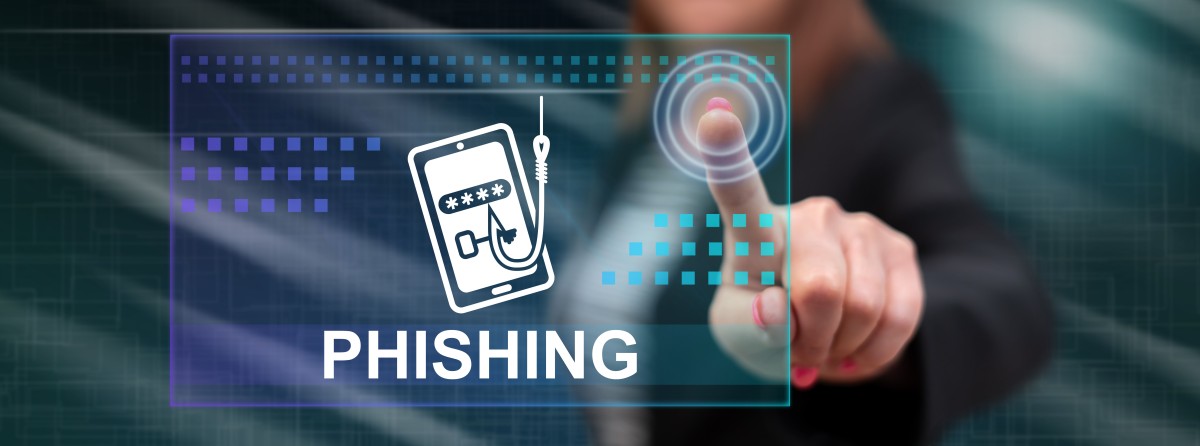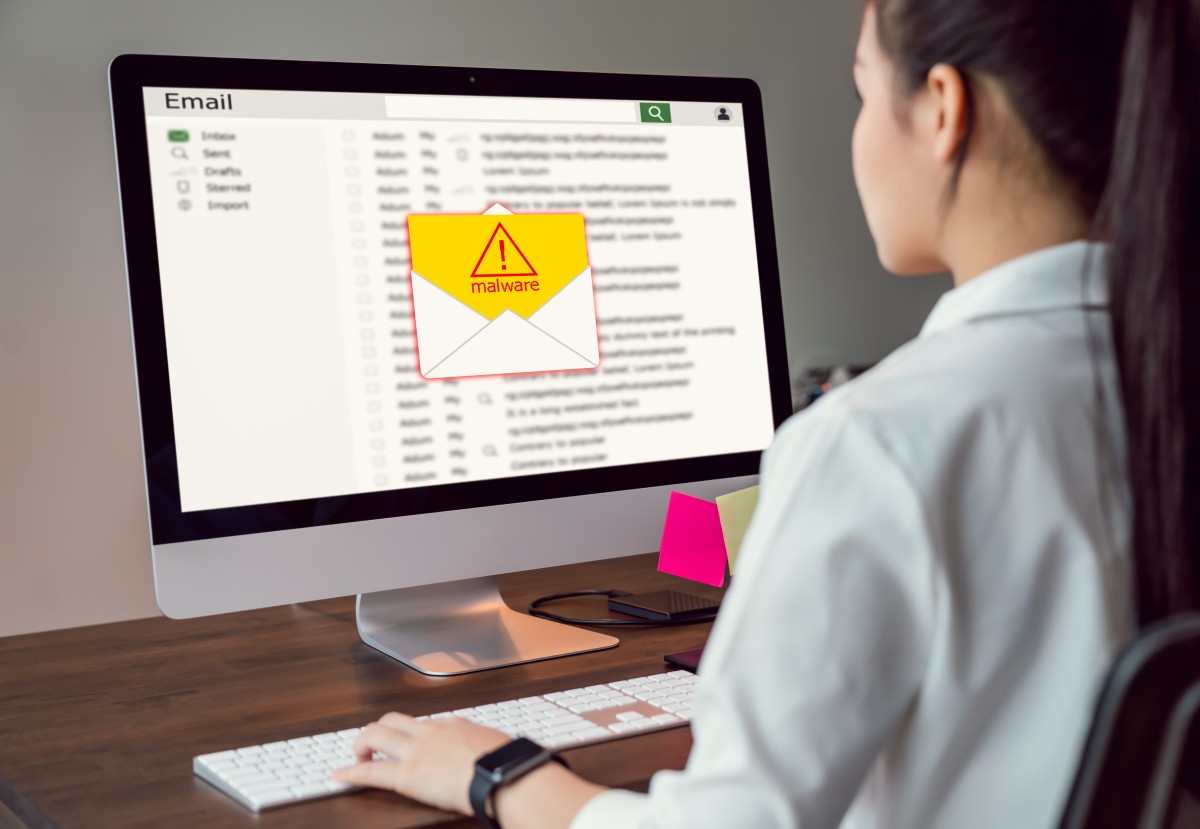Using Patient Education Videos to Support Preventive Care Strategies
As a healthcare provider, you know prevention saves lives. From routine screenings and lifestyle counseling to vaccinations and early detection,...
4 min read
Robert McDermott Feb 1, 2024 12:30:00 PM
 For many practices, email is a major security vulnerability. Unfortunately, cybercriminals are more aware of the opportunities to attack than practices are aware of the risk. Understanding the importance of healthcare email security can save your practice and your patients from data theft, ransomware, and more.
For many practices, email is a major security vulnerability. Unfortunately, cybercriminals are more aware of the opportunities to attack than practices are aware of the risk. Understanding the importance of healthcare email security can save your practice and your patients from data theft, ransomware, and more.
Among the biggest threats are phishing attacks which can trick you into compromising not just your email, but your network. In a fast paced environment, knocking off simple tasks quickly is essential. But, when someone preys on the speed of business and an avalanche of emails to trick your team into clicking on a link, it can be remarkably dangerous for your healthcare practice.
Quick Links:
Healthcare organizations are increasingly becoming targets of cyber threats, and email serves as a primary gateway for malicious actors to exploit vulnerabilities. Safeguarding sensitive patient information is not just a compliance necessity but a critical imperative for any healthcare organization.
The statistics surrounding healthcare email security paint a sobering picture. According to recent reports, healthcare is one of the most targeted industries for cyberattacks. In 2023 alone, there was a staggering 60% increase in cyber incidents targeting healthcare organizations year over year. These attacks range from ransomware and phishing attempts to data breaches, all leveraging email as a primary vector of intrusion.
In fact, phishing attacks remain among the most significant threats to the healthcare sector. In the past year, phishing attacks targeting healthcare professionals rose significantly, with 61% of respondents to a security survey reporting cyberattacks via phishing.
Phishing emails are often disguised as legitimate communication from trusted sources. Not only do these attacks potentially compromise sensitive patient data but they also pose a risk to the integrity of healthcare systems and the overall trust in the industry.
Given the increasing sophistication and frequency of cyberattacks, focusing on email security is becoming a bigger priority for many in healthcare.
 Phishing Attacks and the Healthcare Target
Phishing Attacks and the Healthcare TargetElectronic Health Records (EHRs) and electronic Protected Health Information (ePHI), present a treasure trove of valuable data, making it an attractive target for cybercriminals. EHRs, patient information, and financial data are all assets cybercriminals can exploit for financial gain or use for identity theft.
Further, as healthcare organizations continue their digital transformation, shifting to internet-based systems and embracing digital communication, the attack surface widens, providing more opportunities for malicious actors to infiltrate.
But it’s not just the growing opportunities related to digitization. There are two other significant factors that make healthcare targets enticing: volume of communication/transmissions and past success.
Let’s start with volume. With hundreds of emails potentially coming into a healthcare practice daily, from patients, partners, vendors, and more, it’s hard to examine each carefully, especially with an eye for the tricks phishing attacks use these days.
More specifically, spear-phishing, where attackers tailor messages to specific individuals within your healthcare organizations. These emails often appear legitimate, mimicking communication from trusted sources like colleagues, vendors, partners, or even regulatory bodies.
Because information about common tactics used by phishing attacks has been widely circulated, one might assume we’ll be ready to easily spot them. But with staffing challenges, massive email volume and a busy practice, properly vetting every email is far too time consuming for most healthcare organizations.
And, because of those factors and more, phishing attacks have met with some success, encouraging others to try the same methods. In fact, 2023 saw a 167% spike in advanced email attacks including phishing.
While phishing emails might disguise themselves as official communications from known and trusted sources, there are a few things healthcare teams can look for to help identify potentially dangerous emails. These steps alone won’t solve the problem, but they can help flag emails that warrant further attention before anyone responds to them or clicks a malicious link. Here’s what to look out for:
Educating healthcare professionals about these tactics is crucial. Providing regular training sessions, simulated phishing exercises, and resources on identifying phishing attempts can empower employees to be the first line of defense against cyber threats.
Similarly, fostering a culture of cybersecurity awareness can contribute to the overall resilience of your healthcare practice and protect patient data.
Given the increasing threat, ensuring email security is crucial for healthcare practices to stay solvent, safeguard sensitive patient information, and comply with regulations including HIPAA.
To start, HIPAA establishes strict guidelines for the protection of electronic protected health information (ePHI). This includes email transmissions, so ensuring your practice has HIPAA compliant email is a great first step.
Learn more about what’s required for HIPAA compliant email.
Not sure if you’re compliant? A thorough risk assessment to identify potential email (and other) vulnerabilities may be in order. A HIPAA risk assessment involves evaluating the security of email servers, encryption methods, and access controls. Implementing encryption protocols for emails containing ePHI is a fundamental step to prevent unauthorized interception during transmission.
 Employee training is another key aspect of improving healthcare email security. Staff members should be educated about the risks associated with phishing attacks and the importance of recognizing and reporting suspicious emails. Regular training sessions can empower employees to identify and report potential security threats, reducing the likelihood of falling victim to email-based attacks.
Employee training is another key aspect of improving healthcare email security. Staff members should be educated about the risks associated with phishing attacks and the importance of recognizing and reporting suspicious emails. Regular training sessions can empower employees to identify and report potential security threats, reducing the likelihood of falling victim to email-based attacks.
Furthermore, healthcare practices must establish robust access controls to limit the access to patient information only to authorized personnel. Implementing multi-factor authentication adds an additional layer of security, requiring users to verify their identity through multiple means, such as passwords, time-sensitive security codes and biometrics.
Finally, regularly updating and patching networks and email systems is essential to address vulnerabilities and protect against emerging threats. Healthcare organizations should stay informed about the latest cybersecurity developments and ensure their email security protocols are in line with industry best practices.
Your IT team should be able to confirm you have the latest updates and patches, as well as when they were installed. Better yet, with many cloud-based software solutions, new updates and patches are installed automatically with no work required from you.
The cybersecurity landscape is constantly shifting, but email threats are clearly an area evolving more rapidly than others. Any exposure of patient data, even if accidental, could put your practice at risk of data loss, financial loss, lost trust and lost patients.
One way you can help ensure your email inboxes are safe from phishing attacks is by using a HIPAA compliant encrypted email like iCoreExchange. Not only does it prevent unsolicited or malicious emails from getting through to your inbox, but it also exceeds the federal government’s HIPAA regulations.
Ready to secure your email, your patient data, and your practice? Book a demo with our team today.

As a healthcare provider, you know prevention saves lives. From routine screenings and lifestyle counseling to vaccinations and early detection,...

There’s no denying that the AI boom is here. The American Medical Association reports that 66% of physicians are currently using artificial...

If only managing your practice’s revenue cycle came with a crystal ball. You could spot claim denials before they happen, predict when patients might...

We’ve all had mornings when we open our email and the sheer number of new messages is overwhelming. So, we move through them quickly, hoping to...

Myths exist for a reason and they often have remarkable staying power. Often, they’re designed to explain the ordinary and build our confidence and...

You lock your office door at night. You secure your EHR system with passwords and user permissions. But what about your email? For many healthcare...